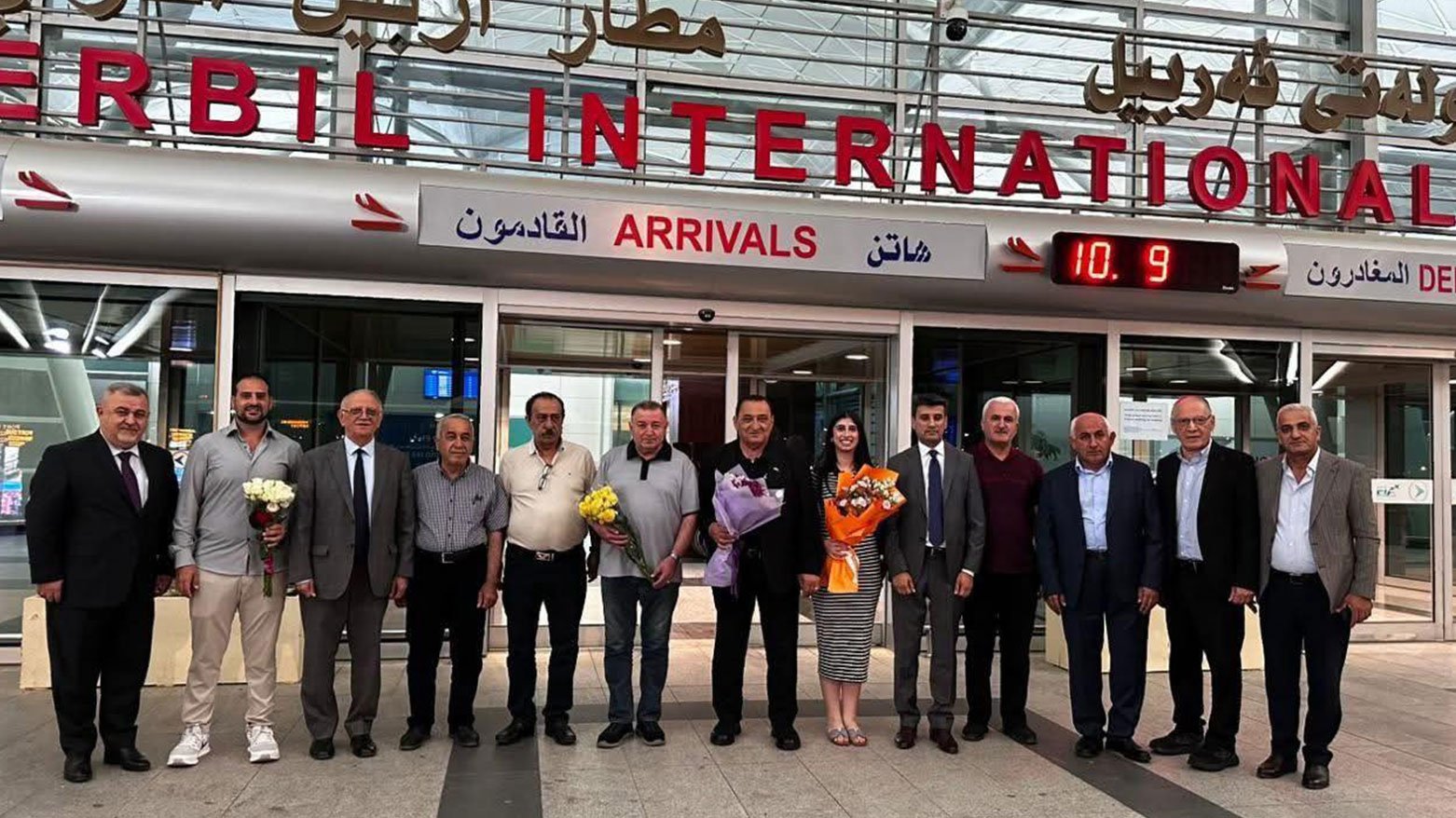Kurdistan Offers Historic Opportunity for Assyrian Entrepreneurs With 100% Foreign Ownership Rights
The Kurdistan Region is emerging as a Middle East hub for diaspora investment, empowering Assyrians to reclaim their role as builders in their ancestral homeland.

ERBIL (Kurdistan24) — The Kurdistan Region of Iraq (KRI), home to many historic Assyrian towns, has emerged as one of the Middle East’s most investor-friendly environments, granting 100 percent foreign ownership and unprecedented protection for diaspora investors, particularly those from the United States and Europe.
Unlike federal Iraqi law, which mandates at least 51 percent local ownership, the KRI allows full foreign control—presenting a historic opportunity for Assyrian entrepreneurs to reclaim their role as builders in their homeland, free from restrictive barriers.
Recently, an Assyrian-American delegation visited the region and met with senior officials from the Kurdistan Regional Government (KRG), including Prime Minister Masrour Barzani, and Mohammad Shukri, Head of the Region's Board of Investment. During this visit, Prime Minister Barzani and other KRG officials highlighted the potential for diaspora-led economic engagement to strengthen Christian communities—particularly Assyrians, Chaldeans, and Syriacs.
During this visit, participants explored strategies to build sustainable ventures that preserve cultural heritage while fostering economic development.
Investment Law No. 4 of 2006: A Legal Foundation for Growth
At the heart of this opportunity is the Kurdistan Region’s Investment Law No. 4 of 2006, which guarantees equality between local and foreign investors. The law provides essential protections for diaspora entrepreneurs, including:
- 100% Foreign Ownership: Investors may establish businesses wholly owned by foreign entities, including U.S. and European-based LLCs.
- Tax Exemptions: Up to ten years of relief on corporate taxes, customs duties on machinery, and raw materials.
- Land Use Rights: Long-term leases of up to 50 years for projects such as manufacturing, housing, or tourism, with promotional rates or no-cost allocations for major ventures.
- Profit Repatriation: Investors may freely repatriate capital and profits in convertible currency.
- Simplified Licensing for Major Projects: Investments above approximately $2.5 million qualify for expedited approvals, priority land allocation, and infrastructure support.
The law operates independently of Baghdad’s framework, insulating diaspora investors from the legal and bureaucratic obstacles that hinder investment elsewhere in Iraq.
In a related development on Saturday evening, Bargasht Akrayee, the spokesperson for Kurdistan Region's Board of Investment, told Kurdistan24 that David Tafuri, the President of the U.S.-Kurdistan Business Council (USKBC), accompanied by a delegation of American businesspeople and investors, is set to visit Kurdistan Region on Sunday.
According to Bargasht, the delegation is scheduled to meet with the top KRG officials, including Shukri, and local businesspeople and investors based in the Kurdistan Region.
The USKBC is a non-profit organization based in the United States that promotes trade and investment between American businesses and the Kurdistan Region.
Tafuri, a lawyer and partner at the law firm ArentFox Schiff, frequently leads delegations of American business representatives to the Kurdistan Region to meet with top officials, including the Prime Minister and other KRG ministers, to discuss economic opportunities.
He has prior experience working in Iraq, having served as the U.S. Department of State's Rule of Law Coordinator at the U.S. Embassy in Baghdad from 2006 to 2007.
A Historic Role for Assyrian Entrepreneurs
For decades, emigration has drained Assyrian villages of youth and innovation, leaving communities struggling to sustain cultural and economic vitality. From the plains of Nineveh to the valleys of Duhok, and historic towns such as Ankawa and Alqosh, Assyrians once thrived as builders, traders, and innovators. Today, the KRG investment framework provides the legal and financial infrastructure for them to reclaim that role.
Economic revival in these regions is not merely a business venture—it is an act of cultural preservation. Investments in agriculture, education, healthcare, construction, cultural tourism, and finance strengthen communities, create employment, and safeguard the Assyrian presence in their ancestral lands.
To establish secure operations, diaspora investors are encouraged to adopt a two-tiered structure: a U.S. holding entity combined with a Kurdistan operating company. This approach ensures compliance with local laws while offering protections under international investment treaties, arbitration clauses, and limited liability structures.
The Kurdistan Region’s political stability, growing financial infrastructure, and investor-friendly regulatory environment provide additional safeguards for both capital and human resources.
A Model for Diaspora Engagement
The KRG’s investor-friendly policies have created an environment that contrasts sharply with the federal Iraqi framework, where foreign investors face complex restrictions and partial ownership requirements.
By enabling full foreign ownership, long-term land use, and equal treatment, the Kurdistan Region positions itself as a hub for diaspora-led growth, particularly for Assyrian communities eager to reclaim their heritage and contribute to regional prosperity.
“This is a historic moment for Assyrians who wish to invest in their homeland,” said Alexander Karana, an Intellectual Property Attorney at Cummings, McClorey, Davis & Acho, PLC, who accompanied the American delegation on their recent visit to the Kurdistan Region.
“The Kurdistan Region allows our people to engage in economic development with dignity, security, and purpose, strengthening both our cultural identity and our communities’ future,” Karana wrote in an article that was published on Global Strat View on Friday.
Global Strat View, based in Washington, D.C., covers global strategy, international affairs, and economic analysis. Its fact-driven reporting reaches policymakers, investors, academics, and diaspora communities, earning respect within global political and business circles.
Through strategic investment in the Kurdistan Region, diaspora Assyrians can simultaneously honor their heritage, sustain their communities, and contribute to a modern, resilient, and prosperous Kurdistan.